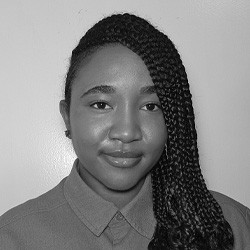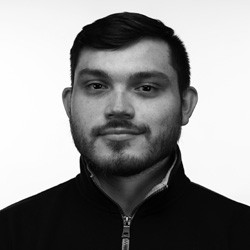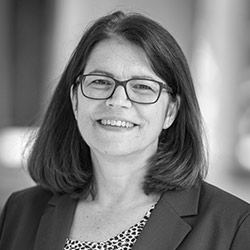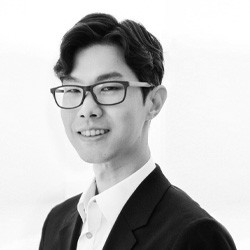Up to the Challenge
Cameron Little has his sights set on a career in engineering project management. But the mechanical engineering major isn’t closing the door on other options. After interning with National Grid during summer 2020, Little was offered a full-time position with the company, where he will begin working as an associate coordinator in project management in gas field operations in January 2021.
In between his studies, Little, a recipient of the Theodore K. Steele Memorial Scholarship, also takes time to stay active within the community. He served as a resident assistant on the Long Island campus dormitories, a supplemental instructor and a senator of the Society of Automotive Engineers. He sat down with The Box to about his major, the work he is doing, and his experience at New York Institute of Technology.
Why did you choose New York Tech?
While I was in high school, I visited many schools in New York state, and out of all of them, New York Tech was the best looking, had the best tours, staff members, and community life. The school made an exceptional first impression on me. Gerry House was beautiful inside and out. The staff and tour guides were very friendly, the campus was gorgeous, and the students were engaged socially and academically. It was a calm, smaller, less social school that appealed to my introverted tastes. I’ll never forget how welcoming and inclusive New York Tech was when I first [got here]. Combine all of that with family [members] who previously enrolled in this school and recommended it to me as well as the scholarship the school provided, it was a no-brainer.
You’re studying mechanical engineering. What attracted you to that field?
I love how mechanical engineering allows us to take concepts that are hundreds of years old and apply them to solve real-world problems. I was told throughout my life that math was useless, but this is simply not true. I learned this best through New York Tech’s excellent math minor program, where I learned how to solve nonlinear physics and engineering problems through computer programming.
I also love how I’m maintaining a sense of comfort in people’s lives. Whether it be providing people heat or electricity, engineering is highly altruistic in the sense that we provide what many take for granted and is necessary for basic survival. Also, the cutting-edge research done [here] is awesome, and it excites me thinking about how technology is, and will always be, rapidly evolving.
Tell us about your summer internship with National Grid?
This internship was unconventional, to say the least. Originally, I was set to work as a maintenance and service department intern but, due to COVID-19, National Grid canceled that internship, and I was assigned to be a gas operations intern instead, and it was all online.
During this internship, my primary project involved “bundling” excel sheets. This meant developing a Python script with a coworker to look through multiple spreadsheets, find content matches from those spreadsheets, and output a spreadsheet with those matches accordingly. The contents in hand were gas meter-related work orders for locations throughout New York, and this was done to save the workers travel time and labor. Through this project, my coworkers and I saved the company approximately $30,000.
I was also involved in an internship project to develop integration plans into National Grid offices and buildings after the COVID-19 pandemic subsides. This culminated in a presentation I made in front of company executives. Utilizing my engineering background, I recommended high-efficiency air filters to install in the HVAC systems to filter out particulate matter more efficiently and reduce the risk of contracting COVID-19 in the workplace. I also suggested workplace scheduling strategies to simultaneously keep National Grid workers safe and maintain productivity in the company.
I had to challenge myself in many ways, including performing GAP and RCA analyses and coding in Python and Excel, as well as how to think about the overall impact of the company through key company decisions.
What was your biggest takeaway from your internship?
The most rewarding aspect of working at National Grid this summer is how much our work was valued. At the end of the summer, my coworkers and I had to present our work to the vice president responsible for gas field operations. The fact that our contributions are taken seriously by someone of such high prestige demonstrated to me that National Grid takes all of their workers seriously.
How did the pandemic impact you and how did you manage your studies?
It was a massive lifestyle change. Prior to the pandemic, I was a supplemental instructor teaching Applied Thermodynamics and a resident assistant on the Long Island campus dorms. Unfortunately, I had to switch to an online instruction setting for the remainder of the semester and had to leave the dorms. Teaching online was hard; it’s simply not the same as being up in front of a whiteboard lecturing, and I lost a lot of the connectivity I had with many of the students who attended the optional lectures.
My study habits, however, remained highly unchanged, aside from losing the ability to meet with friends in person to study. That didn’t stop my friends and me from succeeding. I enrolled in Senior Mechanical Engineering Design last semester, which involved creating a mechanical prototype of my team’s choosing. Even though the pandemic had hit and the odds were stacked against us, we still managed to create a physical prototype of a floor tile that harvests electricity energy when stepped on (informally known as the “Electrostep”), and it worked! This goes to show that the pandemic is purely a setback, and nothing is impossible.











